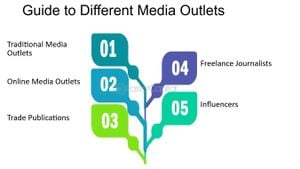Oprah Winfrey finds herself at the center of controversy after recent claims surfaced about her involvement with Kamala Harris' campaign for the presidency. The discussion reignited when social media users alleged she had received substantial payments for her endorsement, leading to heightened scrutiny over the nature of her support for Harris.
Winfrey clarified on multiple occasions, contesting the rumors and emphasizing her genuine commitment to the campaign. The noise began after the town hall event titled 'Unite for America', which took place on September 19, where Winfrey hosted Harris and featured other celebrities, such as Jennifer Lopez and Meryl Streep. The buzz around the event soon turned to speculation about whether Oprah was compensated financially for her endorsement.
According to Winfrey, the sum of $1 million paid to her production company, Harpo Productions, was mischaracterized. She asserted she was "not paid a dime" personally and insisted the amount covered the expenses associated with the production efforts required to stage such a large event. She expressed frustration with the rumors and stated, "If you don’t stop a lie, it just gets bigger." This came after discontent spread on social media, including criticism from her hometown newspaper.
To shed light on this matter and distance herself from transactional allegations, Winfrey elaborated on what these funds entailed, explaining her company's role. Harpo Productions was tasked with all facets of production for the livestream, including logistics, set design, and technical equipment. Winfrey highlighted how her focus was always on supporting the campaign rather than personal financial gain.
Harris' campaign also echoed Winfrey's sentiments. A spokesperson clarified, emphasizing the payment was strictly for production costs and adhering to campaign finance regulations, under which they are obligated to pay for appearance-related expenses. "Oprah Winfrey was at no point during the campaign paid a personal fee," the spokesperson stated, reinforcing the transparency efforts behind the event.
Interestingly, this is not the first time Winfrey has faced scrutiny about her political endorsements. Throughout her career, she has endorsed numerous candidates without any documented payments for her support, including prominent figures like Barack Obama and various Democratic candidates. These previous endorsements often came amid similar sentiments questioning the motives behind her influence.
Further complicate matters, the Federal Elections Commission's (FEC) records demonstrated two payments of $500,000 each from the Harris campaign to Harpo Productions, totaling the $1 million discussed. Leading to more rumors about Winfrey's potential financial benefits drafted from her association with Harris. The payments were clearly listed as for 'event production' on the FEC's detailed reports, which some interpreted as endorsement payments.
Despite the commotion, Winfrey's fans defended her vigorously online. One commenter pointedly dismissed the notion of Winfrey's political endorsements being purchased. Winfrey responded to this loyalty by commenting, "Thank you so much for saying this. I want to high five you and give you a hug." The engagement with her supporters underscored her status as not just a celebrity, but also as someone whose public actions are perceived with varying degrees of loyalty and skepticism.
Her remarks transcended beyond just defending herself; they addressed the broader topic of celebrity influence within politics. Winfrey's commitment to Harris, according to her statements, stemmed from personal conviction rather than transactional motives. She articulated, "My time and energy was my way of supporting the campaign," illustrating the non-monetary nature of her support.
This scenario raises thoughtful discussions about the ethical boundaries of endorsements, particularly when it involves figures as prominent as Oprah Winfrey. The implication of money often convolutes the core intent behind political endorsements, leading critics and supporters alike to question the integrity of these partnerships.
Now as the Harris campaign continues on its path, the allegations against Winfrey linger as part of the narrative. While the production payment is accurately reported, Winfrey's insistence on passion over profit serves as a reminder of the complicated intersection between celebrity culture and political engagement.
Critics still remain, questioning the legitimacy of endorsements from highly popular figures like Winfrey and how they can veil potential ulterior motives. The expectation is clear: endorsements must be born from authenticity rather than the transactional air of money. Winfrey's attempt to charitably align herself with Harris reflects her desire to reclaim her narrative within this discussion.
Consequently, as the election cycles through, both Winfrey and Harris face the challenges of ensuring their messages resonate above the noise of speculation and skepticism. Addressing the public's concerns openly may be their best route to reinforcing credibility and trust, particularly as the bid for the presidency intensifies. With looming debates and rallies, ensuring clarity of their messages could be key to rallying support effectively.
Meanwhile, Winfrey remains vigilant. She has taken steps to combat misinformation and clarify her stance, indicating her resolve to stand by her commitments. The documentary-certain fallout of such controversies continues to reverberate across various channels, showcasing the need for transparency and integrity at the forefront of modern endorsements. The relationship between celebrities, politics, and campaign strategies will likely evolve from episodes like these, influencing how future endorsements will be constructed and perceived.
With all eyes on the forthcoming campaign events, the narrative surrounding Oprah's involvement with Harris will undoubtedly persist, prompting questions about authenticity, loyalty, and the ever-blurring line between celebrity endorsement and political strategy. How these discussions are navigated will shape both Winfrey's and Harris' trajectories as they press forward.



